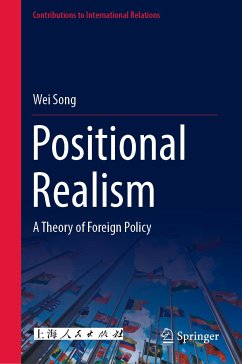This book adopts the rationalist research path to bring forward an innovative theory of foreign policy, and the central question is: How can we define the overall national interests of great powers appropriately and thus help states make consistent and rational grand strategies? The answer can't be found among existing Foreign Policy Analysis and other theoretical research. In this book, Positional Realism is proposed as a new theory to define the overall national interests from the power position and order position perspectives and specify the four kinds of positional interests of hegemonic states, contending states, potential contending states, and non-contending states. Different great powers have different positional power and order objectives. Based on these positional interests, Positional Realism brings different foreign policy hypotheses and suggestions. The book also examines the six great powers in the nineteenth century to verify these hypotheses and finds that PositionalRealism can not only convincingly explain the success or failure of their acts, but also give useful and important directions for strategy making of great powers.
Dieser Download kann aus rechtlichen Gründen nur mit Rechnungsadresse in A, B, BG, CY, CZ, D, DK, EW, E, FIN, F, GR, HR, H, IRL, I, LT, L, LR, M, NL, PL, P, R, S, SLO, SK ausgeliefert werden.









